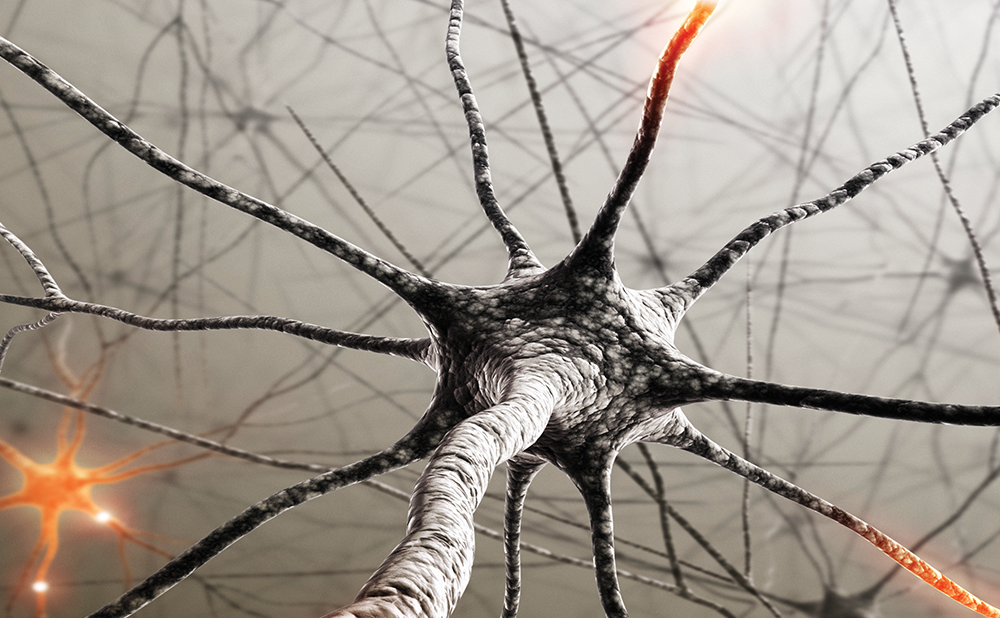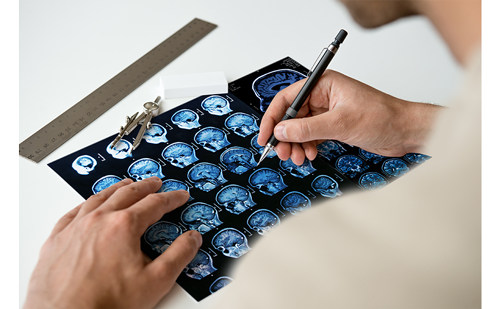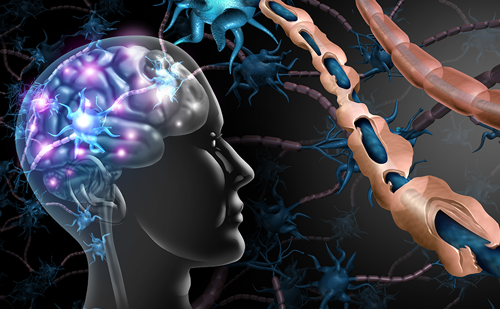Q. What are the main cognitive changes experienced by patients with MS?
The most severe and prevalent cognitive deficit at all stages of the disease is slowed information processing speed.1 This can be thought of as ‘reduced bandwidth’. It means that people with MS find it harder to multitask and are easily distracted. For example, using a sat nav with spoken route directions may cause difficulty whilst they are driving. Also, people with MS working in a call centre with the task of listening to and processing a lot of spoken information may struggle. The next most severe and prevalent cognitive deficits are in visual and verbal memory. This is especially true of prospective memory, which might involve remembering to do something you had previously planned to do, as well as recalling the planned action at a future point in time. This can cause problems in relationships if the partner is not fully aware of this symptom of MS. An example could revolve around a person with MS who is no longer working, and a working partner who requests that some minor chores be done during the day. They might return home to find that the tasks have not been completed, which could be interpreted as the person with MS being unwilling to help around the house, or not appreciating the efforts of their working partner. Executive functions are also affected, which means that planning, organisation and problem-solving skills are diminished.
Q. Which areas of cognition are examined in BICAMS?
The Brief International Cognitive Assessment for MS (BICAMS) assesses information processing speed, immediate verbal recall memory and immediate visual recall memory.2
Q. How is the BICAMS test performed?
BICAMS takes 15 minutes to complete and requires some paper tests, three sheets of A4 blank paper and a pencil with an eraser. The Symbol Digit Modalities Test (SDMT) was selected to measure information processing speed. The test consists of single digits, each paired with a particular abstract symbol. The person with MS is presented with a key that matches nine digits to an abstract shape, and rows of the nine symbols that are arranged pseudo-randomly without paired numbers. They must say the numbers that go with each symbol in turn. The SDMT can be completed within 5 minutes, including the delivery of instructions, and time allocated for practice and testing. In the California Verbal Learning Test-II (CVLT-II), the test of verbal recall, patients are read a list of words at a slightly slower rate than one item per second, and asked to recall as many items as possible in any order, for each of the five trials. The test is a 16-item word list, with four items belonging to each of four categories, arranged randomly. The Brief Visual Memory Test–Revised (BVMT-R), the test of visual recall, requires the person with MS to inspect a 2×3 stimulus array of abstract geometric figures. There are three learning trials of 10 seconds each. After 10 seconds, the array is hidden from view, and the person with MS is required to draw the geometric figures in the correct position from memory, i.e. exactly reproduce the array.
Q. What are the advantages of BICAMS compared with existing methods?
a) BICAMS takes 15 minutes to administer and it has the same sensitivity to cognitive impairment in MS as the recommended, ’gold standard’ minimal assessment of cognitive function in multiple sclerosis (MACFIMS) battery, which takes 90 minutes and requires a number of expensive and cumbersome cognitive tests.3
b) BICAMS can be administered by most healthcare professionals, whereas other batteries, or a bespoke assessment, must be administered by a qualified neuropsychologist.
c) BICAMS has been embraced by the international MS community, with a published international validation protocol.4 Currently there are 30 countries in the international validation pipeline, of which 14 have published so far. These national validations mean that an increasing number of countries can use BICAMS, confident that it is effective and appropriate for their language and culture.
d) Over 20 scientific studies have been published using BICAMS, which means that BICAMS scores can be related to, for example, the effectiveness of medication or physical exercise interventions.
Q. What evidence is available regarding the validation of BICAMS?
There are currently 30 countries in the international validation pipeline. The original committee paper recommending BICAMS is open access and outlines the methodology and justification for the tests selected.1 So far, 14 countries have published BICAMS national validations (America, Argentina,5 Belgium,6 Brazil,7 Canada,8 Czech Republic,3 Greece,9 Hungary,10 Iran,11 Ireland,12 Italy,13 Japan,14 Lithuania15 and Turkey16). Amalgamating national validation data has allowed regression models to be built with larger datasets.17 An iPad BICAMS has also been developed and is undergoing preliminary validation.













